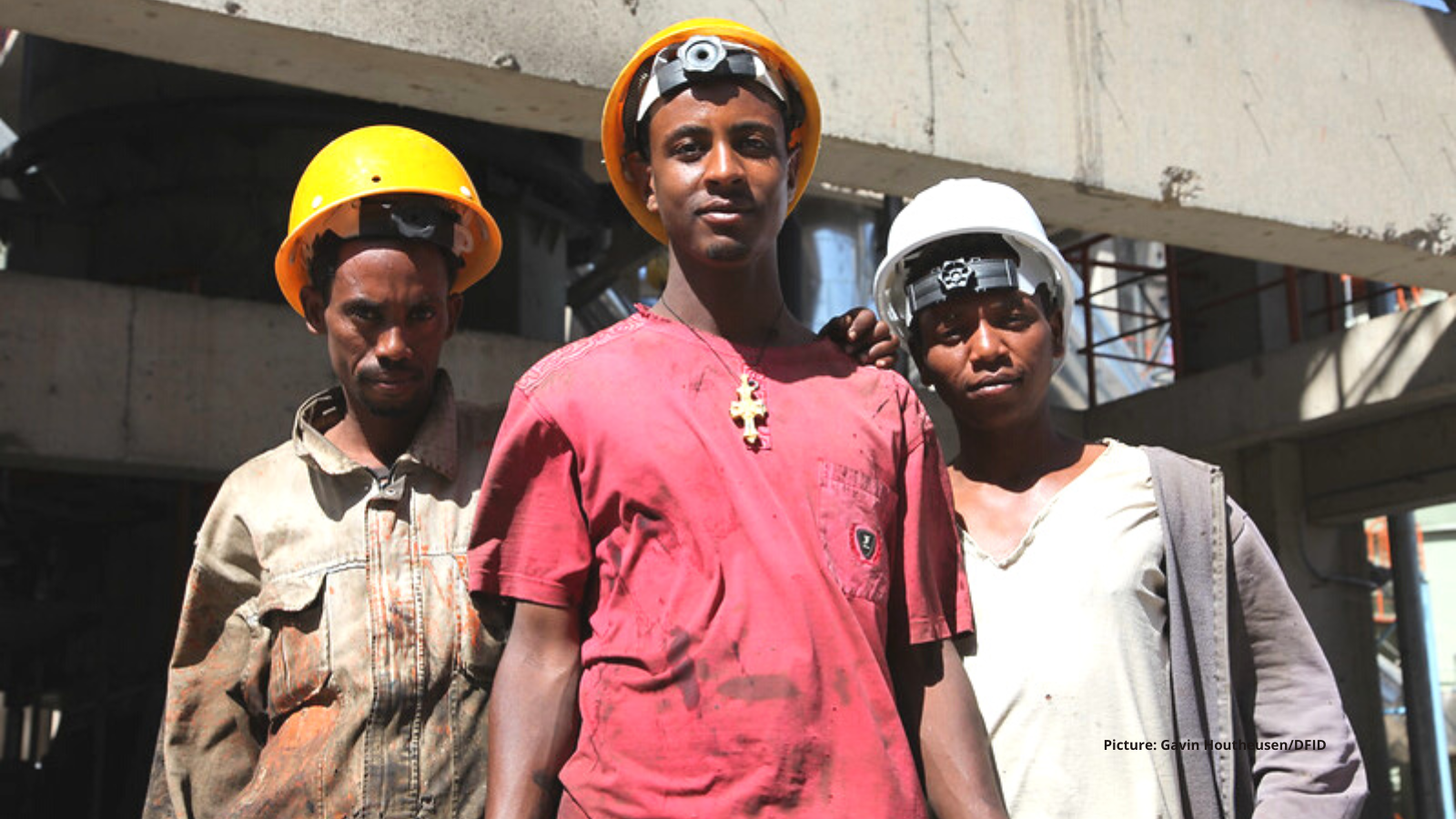Recognizing some of the steps taken towards the establishment of the minimum wage system, including a legislative framework to set up a Wage Board that includes trade unions and civil society stakeholders, EHRC calls on government for urgent efforts to implement these measures. Recalling its findings from monitoring it conducted over several months in 2021 in major industrial parks and shared with relevant government and non-government stakeholders, the Commission has highlighted the average monthly wage remains insufficient to guarantee the right to an adequate standard of living.
The findings confirm other studies which show that close to half of the employed people in Ethiopia are poor (18% live in extreme poverty while 31% are moderately poor) (International Labour Organization, January 2022). Inflation has risen by close to 35% in 2022 for the third consecutive year (Ethiopian Statistics Service) further exacerbated by rising food costs driven by multiple factors including insecurity, global food prices, drought and internal displacement. The fact that nationwide salary scales have not been revised since 2017 is an additional factor.
Indeed, ‘achieving full and productive employment and decent work for all’ by 2030 is part of the Sustainable Development Goals (SDGs) Ethiopia has formally committed to; and “decent work” includes adequate remuneration.
The right to work, the right to just and favourable conditions of work and trade union rights are enshrined in international human rights treaties to which Ethiopia is a party. The FDRE Constitution also recognizes the right to work and at work such as those crucial in the determination of minimum wage including the right to form organisations and the right of women to equal pay for equal work. It goes on to state that the government has the obligation to ensure that everyone gets equal opportunity to improve their economic conditions and to promote equitable wealth distribution among them. Article 89(8) more clearly states that “the government shall endeavour to protect and promote the health, welfare and the living standards of the working population of the country”.
The right to just and favourable conditions of work means that work should provide an individual with a remuneration which at a minimum guarantees a decent life (i.e., the individual and his or her family are able to enjoy other rights such as health care, education and an adequate standard of living including food, water and sanitation, housing, clothing and even commuting costs).
In addition, already in 2012, the Committee on Economic, Social and Cultural Rights (UN Treaty Body) recommended that “Ethiopia take legislative and other measures to introduce a national minimum wage”. The Committee also points out that the establishment of a minimum wage system is one of the ways to realise the right to work.
However, minimum wage (i.e., the minimum amount of remuneration that an employer is required to pay wage earners for the work performed during a given period, which cannot be reduced) is a requisite for the realisation of many key elements of the right to work such as safe and just work environment, rest, leisure and limitation of working time. As such, it has direct correlation to other rights such as the protection of the family.
The Wage Board envisaged in the 2019 Labour Proclamation (1156/2019) is empowered to revise minimum wage based on studies that take into account the country’s economic development, labour market and other conditions. EHRC also notes that the draft minimum wage law has been submitted to the Council of Ministers for its deliberation and endorsement.
On the other hand, the Commission is also cognizant of reports of difficulties, including direct and indirect impact of the removal of Ethiopia from the list of Africa Growth Opportunity Act (AGOA) beneficiary countries, global context, insecurity, bureaucratic hurdles, and other socio-economic factors including reports of large staff layoffs and closure of businesses, all of which have also affected livelihoods and the standard of living.
However, the government’s duty to protect against human rights abuse and violation by third parties, also comprises of putting in place comprehensive policy/legislative frameworks to ensure businesses are socially sustainable- including and in particular during extreme situations both at national level and for the businesses.
EHRC joins the Confederation of Ethiopian Trade Unions and others in strongly urging the government to establish a minimum wage system. EHRC Chief Commissioner Daniel Bekele, reiterating the Commission’s earlier call added, “while minimum wage is not a panacea to all the problems that workers are facing in Ethiopia, it is a crucial step that can ensure decent living for the workers and their families, in particular, if it is coupled with other necessary socio-economic measures”.
